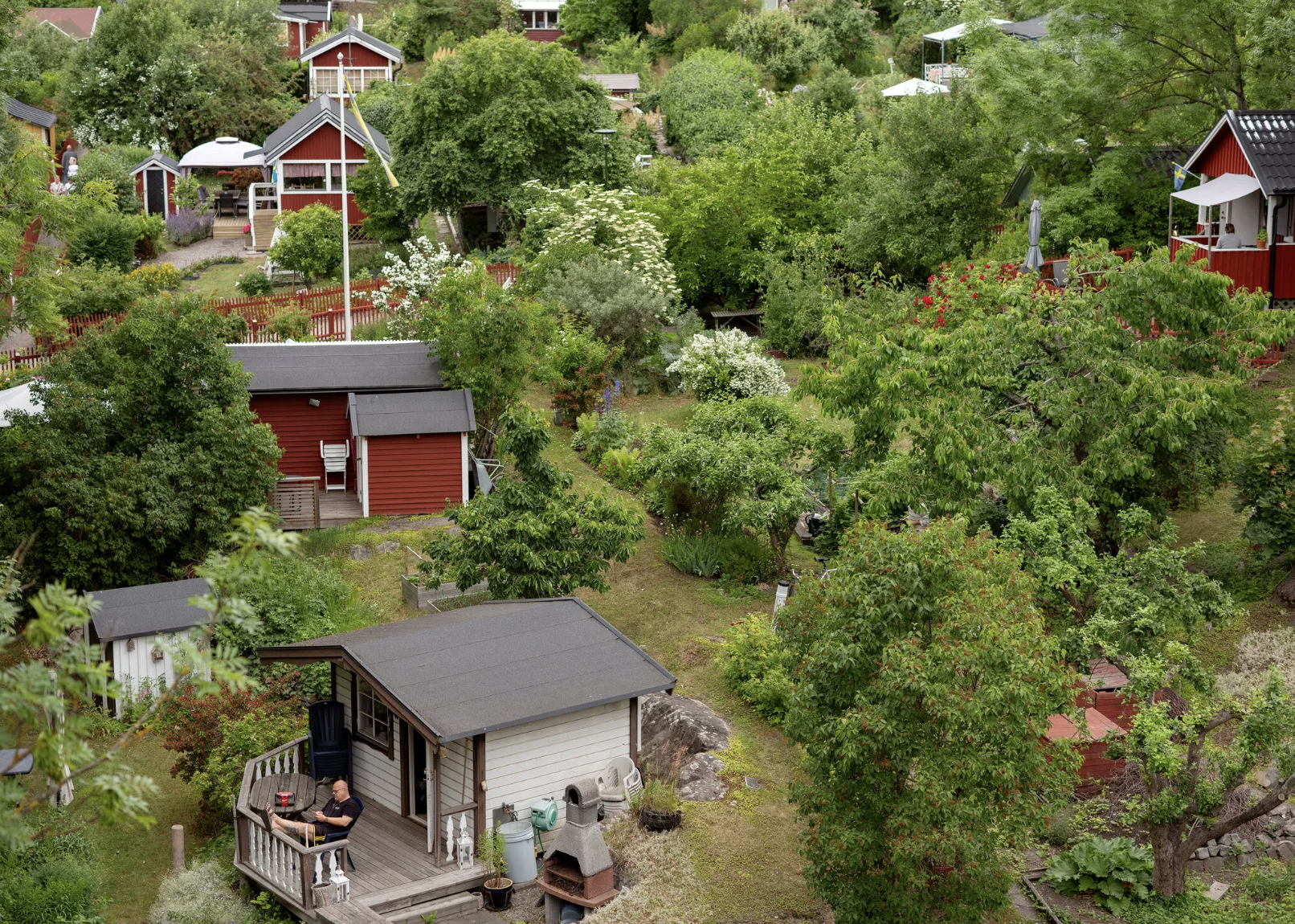The Science (and Soul) of Happiness
Photo of a koloniträdgård by Sofia Runarsdotter for The New York Times
Early on in my career, when I was still teaching Middle School Science, I was working at a private school in Ecuador that was striving to reinvent Ecuadorian education. At the time, all schools in the country lacked critical thinking in their curriculum. Most students were worried more about which pen color I wanted them to use rather than thinking about the material they were learning. As part of a curriculum development team, I worked with a few other teachers to research education in other countries; we wanted to know which countries were the best and why they were the best.
Singapore, for example, had a fantastic curriculum that focused heavily on critical thinking skills. Sweden, on the other hand, did very well not necessarily because of their curriculum but because being a teacher was one of the most highly valued professions. In the United States we often joke that if you can't do, teach, while in Sweden teachers are paid well and respected which leads to better-equipped educators at the helm of the classroom.
I started thinking about all this when I read my news email this morning. At the very top was a link to an article about koloniträdgårdar - a Swedish word for their urban garden program. The beginning of the article was lovely, talking about how these garden plots provide a haven for city dwellers. Ms. Larsson, for example, is 98 years old and has been tending her garden for 40 years. It made me think of my curriculum team because researchers have tried to do the same thing with happiness; people everywhere want to know which people are the happiest and why they are the happiest. As I read about these plots, which also come with cottages that have electricity and running water allowing for a true escape from their urban life, I thought about how these people must be so happy; they don't need much, just their garden.
The article goes on to discuss the health benefits of gardening which have been well established in research on happiness and wellbeing: "Cecilia Stenfors, an associate professor of psychology at Stockholm University, said her research shows that those who frequently visit green spaces, whether a forest or a koloniträdgård, have better health outcomes, in terms of fewer depressive symptoms, less anxiety, better sleep and fewer feelings of loneliness and social isolation.”
So, there you have it - if you want to be happy and in better health just get yourself a garden. In Sweden it’s yours for the low price of 100K and about 17 years on the waiting list…. I guess happiness isn't so simple anymore, is it?
Back in 2010 a study came out claiming that money can buy happiness, but only up to a 75K salary (today's equivalent of 90K). Above that, the study claimed people don't get happier; once basic needs are met, happiness can't be influenced by money. Unfortunately, that study only had 1,000 people and wasn't very in depth. Later, a 2021 study came out which followed 1 million people, claiming that money does buy happiness, even above that 75K threshold. It is worth noting, however, that all these studies were based in the United States where material wealth is associated with happiness: "a Gallup World Poll study of people from many countries and cultures also found that, although higher income was associated with higher life evaluation, it was non-material things that predicted experienced well-being (e.g., learning, autonomy, respect, social support).”
All of these studies are discussed in length in this Psychology Today article, and so if you're interested in the topic, I highly recommend reading the full article, but the short point I want to make this morning is that happiness is complicated because life is complicated. When we were doing that research on education, we knew we couldn't just copy another country's style because there were too many variables at play. We observed, we studied, and then we put something together that was our own. It is the same with happiness; we can't just do some research and say if you start a garden, you'll be happy. We also can't ignore the correlation between money and happiness: another Swedish study on lottery winners discovered - surprise! - that a big ol' pile of money does make life a little easier because money can buy things like garden plots and healthcare and vacations.
But while a vacation may cost a lot of money in 2025, who you’re vacationing with matters more, so enjoy those moments. Savor the company because happiness isn’t a formula—it’s a mosaic. It’s built from what we can afford, what we choose, and what we notice. We may not all have a koloniträdgård, but we can still plant joy in the spaces we already have. A walk. A conversation. A moment of stillness. In the end, happiness isn’t something we copy—it’s something we cultivate.
